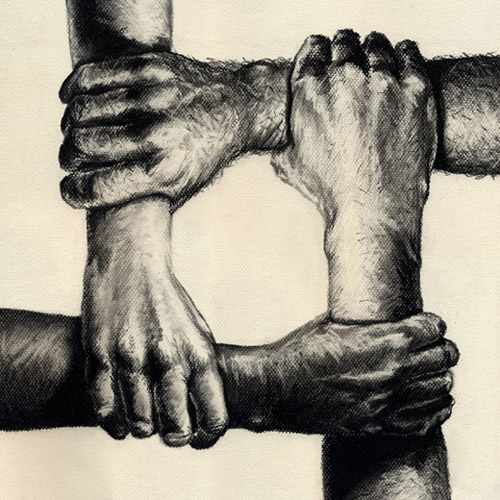 The Korean Peninsula has been a hotbed of change and action for many a millennium. Through many attempts of conquest, everything from the Mongol hordes to Chinese rule, Korea has remarkably maintained a mostly unified sense of self. It wasn't until the recent past of Japanese colonization, the division of the Koreas, the Korean War, and the presence of the West that Korea has faced true threats to its sense of identity. Identity that was established by influential forefathers in the Chosun Dynasty to be centered around Confucian ideals of virtue, harmony, faithfulness and the like. These values generated a society that heavily favored richness of spirit and knowledge over richness in material items and wealth. The aforementioned factors have each contributed to the gradual schism in Korean culture. Japan implemented a policy of assimilation in a bid to erode the cultural foundation Korea had rested on for so long. Then, with the split, North Korea opted for socialist thought and focused their cultural policies on supporting government perspectives in the eyes of the people. South Korea opted for the alternate path and sided heavily with the United States and interests of the West. A huge conflict has erupted from the glaring differences between the two states, with America being vilified as having a sense of pop culture dominated by violence, greed, and individualistic tendencies. One that is clearly at odds with the Korean interest in personal enrichment in mind and soul. In some ways, the current state of the United States is not far removed, one could relate the global war on terror and anti-Islamic sentiment to Japanese colonial aggression in the sense of being less a physical conquest than an ideological invasion. The conservative wing of Americans has latched on to this idea heavily is thought to have eroded the basis of what the United States was founded on in free immigration and open-mindedness. Though it wasn't the same physical separation that Korea experienced, in recent years a huge resurgence in interest in issues such as race relations, police violence, and gun control has led to immense internal conflict among communities. However, despite all these issues, both states are immensely resilient and the remaining question to be answered is, is it possible for each country to achieve one unified and harmonious blend of cultural identity?
The Korean Peninsula has been a hotbed of change and action for many a millennium. Through many attempts of conquest, everything from the Mongol hordes to Chinese rule, Korea has remarkably maintained a mostly unified sense of self. It wasn't until the recent past of Japanese colonization, the division of the Koreas, the Korean War, and the presence of the West that Korea has faced true threats to its sense of identity. Identity that was established by influential forefathers in the Chosun Dynasty to be centered around Confucian ideals of virtue, harmony, faithfulness and the like. These values generated a society that heavily favored richness of spirit and knowledge over richness in material items and wealth. The aforementioned factors have each contributed to the gradual schism in Korean culture. Japan implemented a policy of assimilation in a bid to erode the cultural foundation Korea had rested on for so long. Then, with the split, North Korea opted for socialist thought and focused their cultural policies on supporting government perspectives in the eyes of the people. South Korea opted for the alternate path and sided heavily with the United States and interests of the West. A huge conflict has erupted from the glaring differences between the two states, with America being vilified as having a sense of pop culture dominated by violence, greed, and individualistic tendencies. One that is clearly at odds with the Korean interest in personal enrichment in mind and soul. In some ways, the current state of the United States is not far removed, one could relate the global war on terror and anti-Islamic sentiment to Japanese colonial aggression in the sense of being less a physical conquest than an ideological invasion. The conservative wing of Americans has latched on to this idea heavily is thought to have eroded the basis of what the United States was founded on in free immigration and open-mindedness. Though it wasn't the same physical separation that Korea experienced, in recent years a huge resurgence in interest in issues such as race relations, police violence, and gun control has led to immense internal conflict among communities. However, despite all these issues, both states are immensely resilient and the remaining question to be answered is, is it possible for each country to achieve one unified and harmonious blend of cultural identity?Yim, Haksoon. "Cultural Identity and Cultural Policy in South Korea." International Journal of Cultural Policy 8.1 (2002): 37-48. International Journal of Cultural Policy. Web. 31 Jan. 2016.
Image: http://paulbielaczyc.com/wp-content/uploads/2013/01/Unity1.jpg
No comments:
Post a Comment